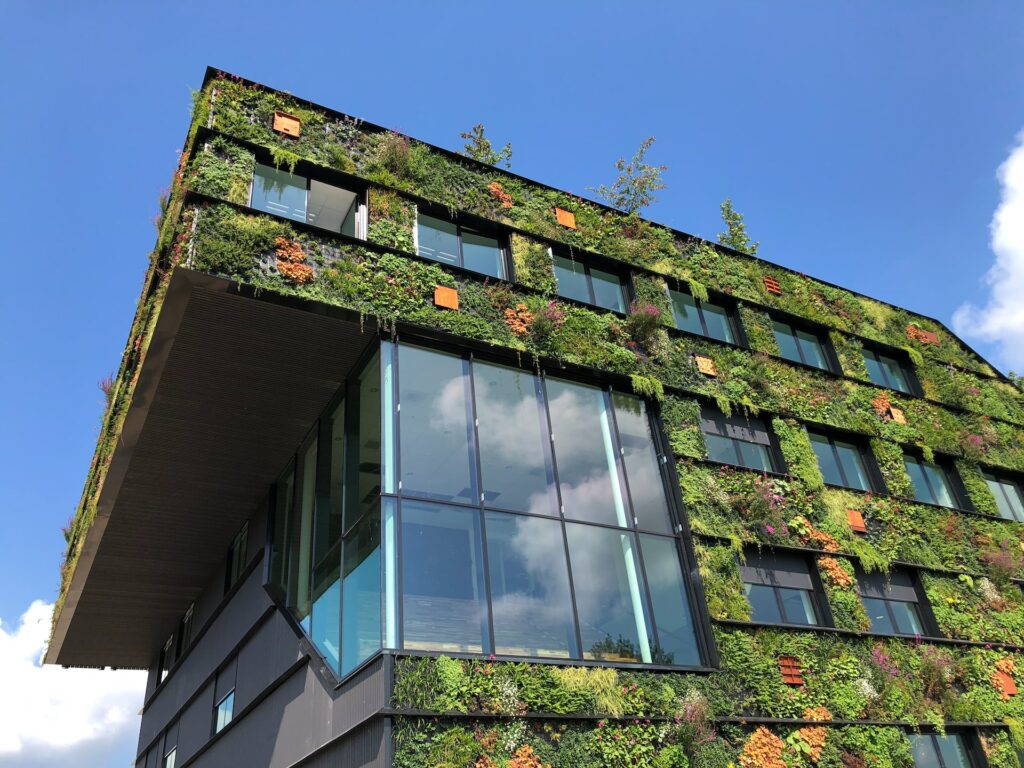
Photo: unsplash
What´s new in the New European Bauhaus
Two years after its launch, the New European Bauhaus (NEB) has become a catalyst for the European Green Deal transformation. With over 600 official partner organisations ranging from EU wide networks to local initiatives, the NEB reaches millions of citizens. The initiative is bringing together people from various backgrounds - from art and design, cultural and creative industries, cultural heritage institutions, to educators, scientists and innovators, businesses, local and regional authorities, and citizen initiatives.
Most recently the 2023 initiatives have been announced:
– The Prize: apply until 31st of January
– The Report: presents the key activities and achievements since its beginning
– The Compass: assessment tool to embody NEB in projects.
The New European Bauhaus Prizes
The prizes recognize beautiful, sustainable, and inclusive projects and support the younger generation to develop emerging concepts and ideas further. Following the success of the 2021and 2022 editions that received more than 3 000 applications from all the EU Member States, the prizes are back to celebrate inspiring examples of the transformations we want to bring about in our daily lives, living spaces and experiences.
What are the prizes about?
The four prize categories reflect the New European Bauhaus transformation themes:
- Reconnecting with nature
- Regaining a sense of belonging
- Prioritising the places and people that need it the most
- Shaping a circular industrial ecosystem and supporting life-cycle thinking
In each category, there are three parallel competition strands:
- New European Bauhaus Champions for existing and completed projects
The winners receive EUR 30 000 and a communication package. - New European Bauhaus Rising Stars for concepts by young talents aged 30 or less
The winners receive EUR 15 000 and a communication package. - New European Bauhaus Education Champions for education and learning initiatives
The winners receive EUR 30 000 and a communication package.
Who can apply and by when?
The prizes are open to applications from the EU Members States. For the first time this year, they are also open to the Western Balkans.
The submission deadline is on 31 January at 19:00 CET. Applications may be modified as long as they are in draft mode.
How to apply?
Visit the dedicated platform to register and submit your application.
On the prize’s platform, you will find more information on the categories, a detailed guide for applicants in all EU and Western Balkan languages, and the official contact point for questions related to the prizes.
Call for external experts
Until 31 January 2023, experts in the New European Bauhaus fields can submit their expression of interest to evaluate applications for the 2023 edition of the prizes.
The New European Bauhaus Compass
NEB Compass, is an evaluation tool that helps understand to what extent a given project is embodying the NEB approach. It explains what the three NEB values, sustainability, inclusion, and beauty, mean in specific contexts; how they can be integrated and combined with the working principles of participation and transdisciplinary. Based on this Compass, more detailed assessment tools will be developed, starting with the built environment.
The New European Bauhaus Report
The Progress Report presents the initiative’s key activities and achievements since the adoption of the Communication on the New European Bauhaus in September 2021. The Report also intends to provide a basis for the continuation of a discussion on the future directions of the initiative.
Further On
This year, the NEB will also develop the NEB Academy and will put in place trainings on sustainable construction, circularity, and biobased materials to accelerate the transformation of the sector. Ongoing projects will continue, such as the NEB Lab, to anchor the NEB in all policies. The NEB also sees it as one of its important tasks to increase presence in countries and regions, including rural areas, where there is only little NEB activity thus far.